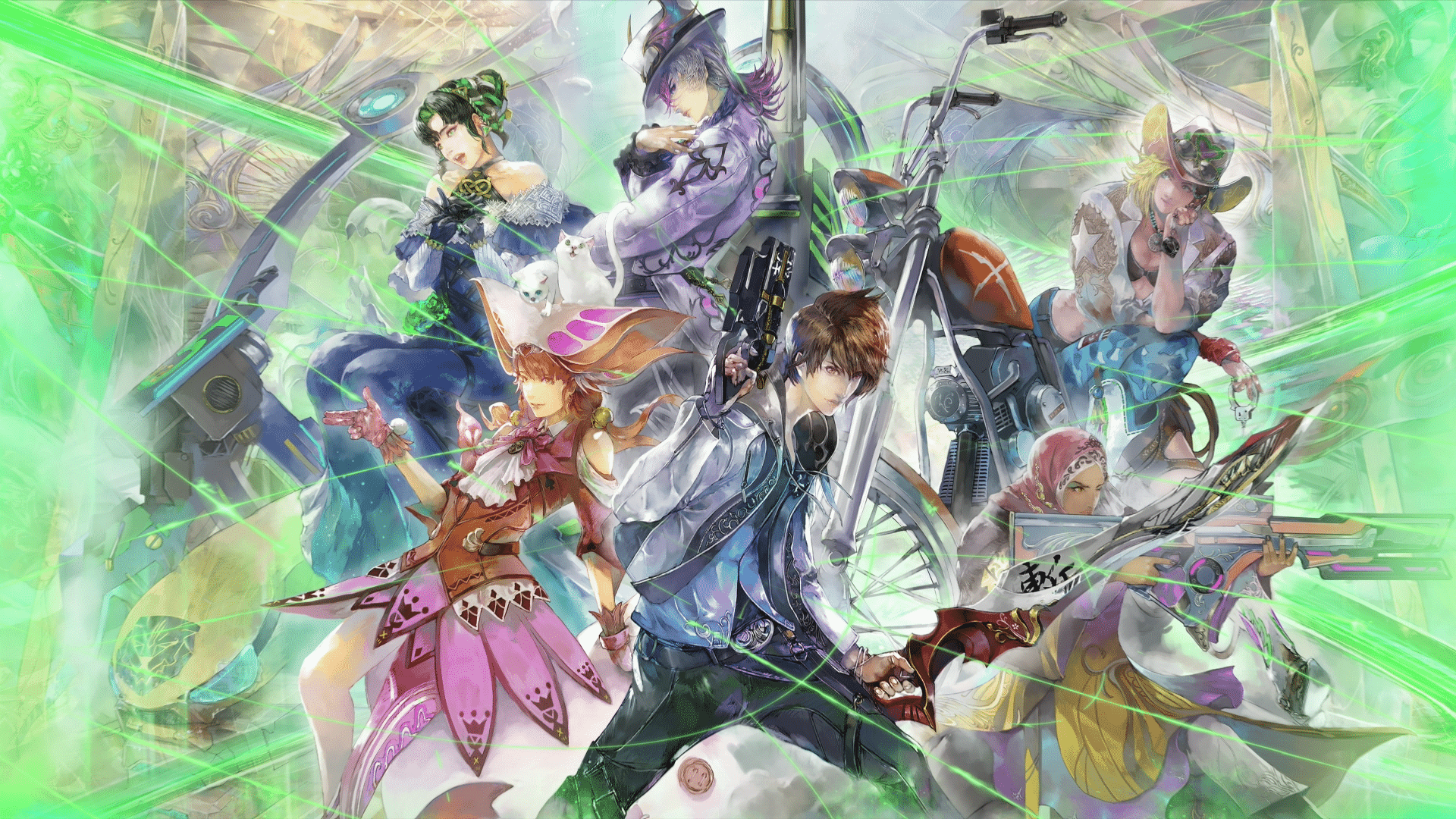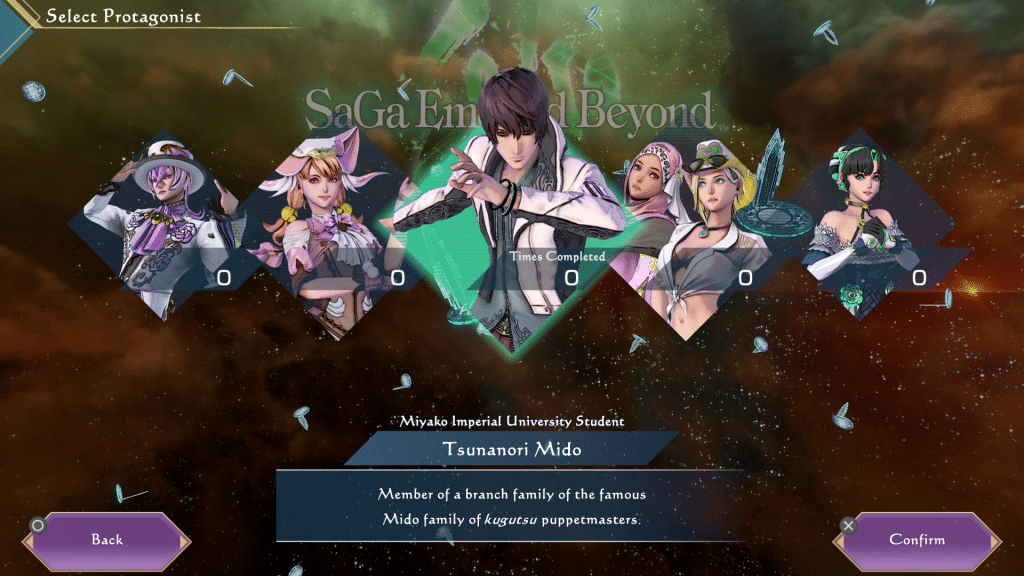

SaGa is one of Square Enix’s weirdest franchises. Every entry is a little different, offering a unique perspective on narrative, or gameplay direction. In turn it has created a small, but extremely dedicated fanbase that eagerly awaits each release. With SaGa Emerald Beyond being the first major release in quite a while expectations are high. With a greater vision, various stories to explore, and more, is it a must, or should this release be forgotten?
SaGa Emerald Beyond starts by asking players to select their protagonist. There are a total of five options, each with their own setting, and motivations. Unlike a lot of these games the options are also pretty diverse. There is a vampire lord, aspiring sage, robotic songstress, the usual university student in over his head, and a pair of police officers. These diverse paths make the choice hard, though the general approach to narrative quickly removed that concern.


On a basic level SaGa Emerald Beyond suffers from two basic issues. These initially interesting stories do nothing with that early momentum. Take my original choice Siugnas. After a brief introduction to the vampire lord, a colorful cast of largely generic characters are added. To help them stand out they’re largely introduced via title/role, complete with some of the more uninspired dialogue I’ve read in a while.
In situations like this I’d hope the voice cast could elevate things, but if anything they further highlight these issues. A number of characters have a weird cadence. One stand out example is the King who sounds like a caveman. I initially thought AI, yet several of these characters have actors attached to them, and said actors seemingly exist. Instead, it just seems like this was the direction they decided to take. Worst still, I can’t find an option to swap to Japanese either, so there isn’t even another option.
Despite the weak narrative, SaGa Emerald Beyond offers interesting turn-based combat. Players are given a number of stars, with each attack using a set amount. This continues until every character makes a move, or there are no stars left to use. What I like about it is the timeline system feels like a simplified version of The Caligula Effect.
Every action takes place at a set time and duration, which can be synced up with teammates for team attacks. It makes things a bit more interesting, without getting lost in convoluted mechanics. There is also a bit more to attacking than simply syncing moves.
Characters can be knocked out of rotations, so it’s sometimes better to attack first to prevent wasting time. There are also a number of defensive moves worth considering. These are great of allies are low on health, or to have better overall control over the battlefield. Sometimes they’re also a must to ensure moves that take multiple turns work as intended.
It makes things interesting, along with fights that push for a genuine understanding of mechanics. I wasn’t careful in the first couple of encounters, only to find enemies had no problem killing my allies. This push for punishing encounters adds a lot more depth to this system than a number of experiences that do a lot, yet can be largely ignored.
Outside of combat players can work on build/progression. Thankfully, those who don’t want to fret every detail can select auto equip to simplify things. Due to the aforementioned punishing gameplay, it helps a lot to have a good grip of your team as you transverse the various locations.
Overworld sections can be hit/miss. I like that there is some level of exploration, though it often feels hollow with a surprisingly flat world. Take the vine climbing option. Great to see in a jungle section, yet it simply takes a moment to load a scene on an elevated level.
Several locations only have so much to see. Gameplay is largely just going between rather flat objectives. There isn’t anything particularly notable about a world that is closer to a pop-up book without any of the charm. Yet that is largely how these sections play out.
Graphics are also something of a struggle across the board. The comic book style cutscenes aren’t too bad, though it really hurts combat. Fights start with a cheesy run sequence, followed by some of the blandest moves. At times it, like a number of other things, is so bad it becomes good, yet relying on camp isn’t the best course of action.
SaGa Emerald Beyond: At its core I think SaGa Emerald Beyond is a game held back by budget, and ambition. It simply wants to do a lot, without the resources to do it, so everything else suffers in the process. This doesn't automatically make it a bad game, though it's going to be one where a fairly large number of players will not enjoy. – Mark
Editor’s Note: SaGa Emerald Beyond was reviewed for PlayStation 5, and a copy was provided to us for review purposes.
Indiana Jones and the Great Circle scores big at the Nordic Game Awards 2025 with…
Tons of Warhammer PC games are currently offered with steep discounts on multiple online retailers…
Neil Druckmann, the Creative Director for The Last of Us series, has recently confirmed that…
Spider Man 2 still remains a very sloppy release on PC. Instead of properly fixing…
More than 70% of online only titles have been scrubbed away from earth. Some PC…
Warhammer 40.000: Rites of War is currently free on GOG. PC gamers remember how amazing…